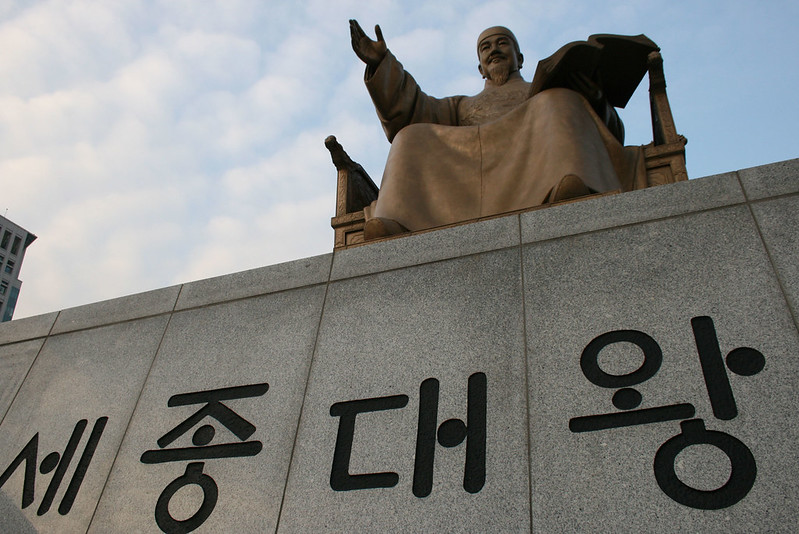The battle over language: the 38th parallel of Korean
Seventy years after the armistice that marked the separation Pyongyang is punishing the spread of Korean spoken in Seoul among the population of the Democratic People's Republic with harsh penalties. One way to limit the South's influence, but the popular culture of Hallyu is also increasingly present in the North and can play a key role among younger generations.
Milan (AsiaNews) - This month Korea commemorates the 70th anniversary of the armistice that marked its division in a climate that has seen the clash between Pyongyang and Seoul flare up again in recent years.
But beyond public speeches and missile tests there is a very special frontier through which it is possible to look at relations between the two Koreas: that represented by language.
During its eighth session, held between January 17 and 19, 2023, the 14th Supreme People's Assembly (SPA) passed the Pyongyang Cultural Language Protection Act.
The new legislation, which, as its name suggests, aims to preserve the North Korean version of Korean by announcing extremely harsh penalties for any citizens who are caught using or spreading terms belonging to the Seoul dialect, which the legislation calls the Puppet Language.
This is the most recent measure to address the spread of Southern culture in the country by prosecuting all those who speak, imitate, teach or spread linguistic elements belonging to South Korea, with penalties ranging from forced labor to execution, mentioned explicitly in the document in Article 6.
The issue of language belonging is a sensitive one for the North, which for decades has taken various paths to remove all forms of foreign influence from the country. Korean as a cultural component has been highly politicized.
In the 1960s Kim Il Sung recognized the language and its dissemination as an important weapon in advancing the education of the masses to a common ideology, consequently becoming the main vector for the creation of a Korean socialist society.
Over the decades of separation, the Korean spoken in the North and the Korean spoken in the South have evolved differently, though remaining the same language.
On one side is Seoul Korean, which has only partially removed foreign terms inherited from Japan during the colonial period and has slowly assimilated English-speaking terms. On the other is Pyongyang Korean, which has been purged of almost all foreign linguistic influences (often Chinese and Japanese).
The North sees preserving language purity as a way of preserving its ideological unity; it is not surprising, therefore, that from Kim Il Sung to Kim Jong Un measures to culturally isolate the North have been an important part of national policies.
The Pyongyang Cultural Language Protection Act itself is complementary to an earlier legislation passed in 2020 namely the Anti Reactionary Thought Law.
With the 2020 law, the government aimed to put in place solutions to limit the dissemination of materials illegally imported from abroad into North Korea. In 2022, the public execution of two teenagers, estimated to be between the ages of 16 and 17, was made public.
The two youths had been caught attempting to sell USB flash drives containing smuggled multimedia materials from South Korea and the West in their local market.
Limiting cultural contagion in the country altogether, however, is neither realistic nor possible. While in the West the phenomenon of Hallyu - the spread of Korean culture (Korean Wave) internationally - took hold significantly just over a decade ago, in North Korea the cultural contagion through films, music, k-dramas, books, and cosmetics illegally brought into the country and sold on the black market has lasted since the early 2000s and has been made easier by the digital revolution.
Today it is the Jangmadang Generation (those born in the 1990s) that is most influenced by it and has become the protagonist of the language spread, which is possible thanks to the smuggled materials that the government tries to curb.
For Seoul, the Korean Wave phenomenon has proven to be a significant source of soft power that has enabled the spread and popularization of its culture abroad, resulting in significant economic growth for the sectors involved, while also contributing to the study of Korean internationally.
In 2022, Korean was the seventh most studied language on the Duolingo app, ranking higher than Mandarin. But in the case of North Korea, the phenomenon may have other advantages.
The spread of Seoul culture and dialect to Pyongyang-especially among those generations who are now historically distant from the socialist revolution and who see life and the social system represented through foreign media as an attractive alternative to what they experience at home-could form the basis for fragmenting the North's ideological identity by making the nuclear advantage less relevant than it is today. The harsh repression even on such a ground as language is therefore not surprising.
The weight of Korean in the Hallyu, however, could resurrect the unifying role that language already played with the introduction of the writing system we know today. Hangul-designed in 1443 during Sejong's reign-was designed for the specific purpose of making it easier to learn written Korean, with the introduction of a phonetic alphabet instead of Chinese characters.
The goal even then was learning by the common people as well, simplifying communication and cultural understanding, as would be desired between Seoul and Pyongyang today.
12/02/2016 15:14
18/04/2018 09:31
10/04/2018 11:03
28/03/2018 12:27







.png)










